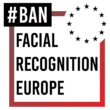France becomes the first European country to legalise biometric surveillance
EDRi member and Reclaim Your Face partner La Quadrature du Net charts out the chilling move by France to undermine human rights progress by ushering in mass algorithmic surveillance, which in a shocking move, has been authorised by national Parliamentarians.
For three years, the EDRi network has rallied against biometric mass surveillance practices through our long-running Reclaim Your Face campaign. Comprised of around eighty civil society groups and close to 100 thousand European citizens and residents, our movement has rejected the constant tracking of our faces and bodies across time and place by discriminatory algorithms. We have called for lawmakers to protect us from being treated as walking barcodes, and the European Parliament is now poised to vote to ban at least some forms of biometric mass surveillance at EU level.
In contrast, EDRi member and Reclaim Your Face partner La Quadrature du Net (LQDN) charts out the chilling move by France to undermine human rights progress by ushering in mass algorithmic surveillance, which in a shocking move, has been authorised by national Parliamentarians.
The article 7 of the Law on Olympic Games’ organisation has been adopted by the national parliament, “Assemblée Nationale”, formalising the introduction of Algorithmic Video-Surveillance in French Law, until December 2024. Due to the fuss regarding the retirements reform and following an expedited-as-usual process, French government succeeded in making acceptable one of the most dangerous technology ever deployed. Using lies and fake storytelling, the government escaped from the technical, political and judicial consequences in terms of mass surveillance. Supported by MPs from the governmental majority and far-right parties, algorithmic video-surveillance has been legalised backed by lies, undermining always more the democratic game.
- The lie of biometrics: The government repeated and wrote down in the law that algorithmic video-surveillance is not related to biometrics. This is entirely false. This technology constantly identifies, analyses, classifies the bodies, physical attributes, gestures, body shapes, gait, which are unquestionably biometric data. LQDN explained it (see note or video), tirelessly told rapporteurs in the Sénat and Assemblée Nationale, the representatives, along with 38 other international organisations and more than 40 MEPs (members of European Parliament) who recently called out the French government. Despite this, the French government stood with its lies, concerning technical as well as legal aspects. France is once again violating EU’s law, consecrating its title of Europe surveillance’s champion.
- The lie of usefulness: The government used the Olympic games as a pretext to achieve faster a long-running agenda of legalising these technologies. In fact, this choice is just keeping to a “tradition” widely observed of States profiting from international mega-events to pass exceptional laws. The government convinces people of the necessity to “spot suspicious packages” or “prevent massive crowd movements”. These events suddenly became the top priority for the Ministry of the Interior and deputies, who make the security of the Olympics just about these issues, which were rarely identified as a priority before. Also, these issues can also be resolved by human competency instead of these technologies, as LQDN have demonstrated in this article. Algorithmic video-surveillance acceptance relies on a well implanted myth according to which technology would magically ensure security. In this way, these opaque technologies are deemed useful without any honest evaluation or demonstration.
- The technical lie: Algorithmic video-surveillance’s main application is to identify behaviors, pre-defined as “suspicious” by the police. Arbitrary and dangerous by design, the way these algorithms work has never been explained by the government: because it is not understood by most of those who decide Whether because of inexcusable incompetence or assumed diversion, in the end, the level of the parliamentary debate was extremely low, and certainly not what was expected given the dramatic issues raised by these biometric technologies.Helped by Guillaume Vuillemet and Sacha Houlié, both from the governmental party and some other MPs, what dominated the parliamentary debate was a minimisation rethoric directly inspired from surveillance companies’ marketing narratives, along with lies and technical nonsense. It clearly shows the incapacity of the Parliament to discuss technical questions. Moreover, society should legitimately fear the future, considering how Parliamentary representatives are unable to apprehend the threats of emerging technologies.
As police brutalities overwhelm people’s screens, and as the police, armed with clubs, assures the after-sales service of the most unpopular reforms, the increasing police surveillance is part of a global strategy to stifle any contestation.
Such tactics allowing the State to transform the reality of its surveillance prerogatives must be denounced. Particularly in a context where the meaning of words are deliberately twisted to make people believe that “surveillance is protection”,“security is freedom”, “democracy means forcing them through”. It is necessary to expose and counter this fake democratic game, and to question the extraordinary powers given to the French police. No need to talk about a “Chinese” dystopia to realise the height of the stakes. One can look at France’s history and present political climate to take the measure and understand the twenty years long security drift: more cameras, surveillance and databases, while depoliticising social stakes, and a loss of sense amongst politicians in charge. As a result, the Olympics’ law debates shed the light on the political disorientation of decision-makers, unable to question these security issues.
This first legalisation of automated video-surveillance is a winning step for the French security industry. Those who’ve been asking for years to test their algorithms on the people, to improve them and sell the technologies worldwide, are now satisfied. Soon, Thales, XXII, Two-I and Neuroo, will be allowed to sell biometric softwares to other states, like Idemia sold its facial recognition software to China. The startup XXII couldn’t even wait the law to be voted to loudly announce it raised 22 million euros to become, in its own words, “the European leader” of algorithmic video-surveillance.
The institutions in charge of preserving liberties, such as the Commission nationale de l’informatique et des libertés (CNIL), are totally failing. Created in 1978 and gifted with real and efficient counter powers to document the governmental surveillance ambitions, it is now the after-sales service of governmental regulations and carefully helps companies to implement “good” surveillance, in order to preserve the industry’s economic interests, without any consideration about collective rights and liberties.
This first legal authorisation creates a precedent and opens the gates to every other biometric surveillance technology: algorithmic audio-surveillance, facial recognition, biometric tracking, and more.
LQDN won’t give up the fight and will keep denouncing all of the government’s lies. They will be present as soon as the first experimentations will start and document the inevitable abuses these technologies lead to. They will find ways to contest them in courts and will fight for these experiments to remain temporary. And they’ll keep refusing these technologies and the technopolicing they incorporate, by fighting at the European level to obtain their interdiction.
Left-leaning French lawmakers are planning to challenge the adoption of this bill in the country’s top constitutional court.
This was first published by La Quadrature du Net. Read it in French.


















































































